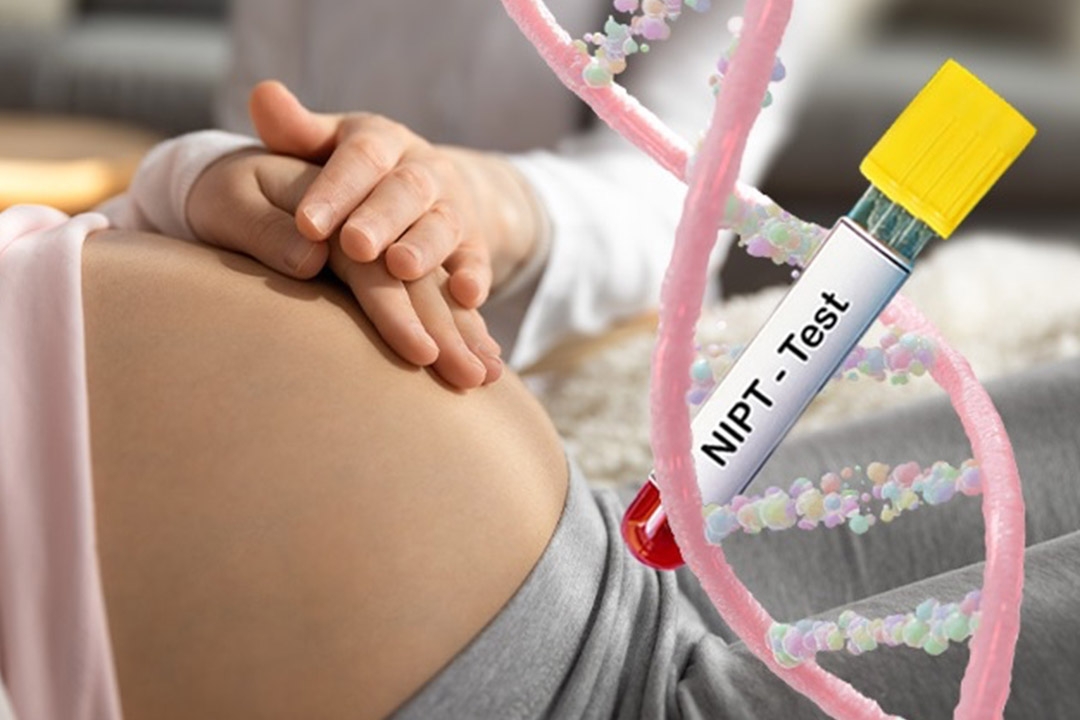Non-invasive prenatal testing (NIPT) is a revolutionary screening test that can detect genetic abnormalities in a fetus as early as 10 weeks into pregnancy. By analyzing small fragments of fetal DNA circulating in the mother's blood, NIPT provides valuable insights about the baby’s health without posing any risk to the mother or baby. But what exactly can the NIPT test in pregnancy reveal?
What is the NIPT Test?
The NIPT test, also known as cell-free DNA testing, is a blood test that examines fetal DNA to detect genetic conditions. Since it analyzes cell-free fetal DNA (cffDNA) derived from the placenta, it is considered highly accurate for identifying chromosomal abnormalities.
What Conditions Can the NIPT Test Detect?
NIPT primarily screens for the following genetic conditions:
✅ Down Syndrome (Trisomy 21): The most common chromosomal abnormality, resulting from an extra copy of chromosome 21.
✅ Trisomy 18 (Edwards Syndrome): A condition that causes severe developmental delays due to an extra copy of chromosome 18.
✅ Trisomy 13 (Patau Syndrome): A rare condition associated with serious physical and intellectual disabilities caused by an extra chromosome 13.
✅ Sex Chromosome Abnormalities: Conditions such as Turner syndrome (XO), Klinefelter syndrome (XXY), and other sex chromosome anomalies.
What Can’t the NIPT Test Reveal?
While NIPT provides insights into chromosomal abnormalities, it does not detect:
❌ Structural Birth Defects: Such as cleft lip, spina bifida, or congenital heart defects.
❌ Single-Gene Disorders: Conditions like cystic fibrosis or sickle cell anemia.
❌ Non-Genetic Conditions: Conditions unrelated to chromosomes or genes.
How Accurate is the NIPT Test in Pregnancy?
NIPT has a high accuracy rate, with:
-
99% sensitivity for detecting Down syndrome.
-
Lower but still reliable accuracy for Trisomy 18 and Trisomy 13.
However, it is a screening test, not a diagnostic test, meaning that positive results should be confirmed with diagnostic tests like amniocentesis or chorionic villus sampling (CVS).
Who Should Consider the NIPT Test?
NIPT is recommended for:
👉 Women aged 35 and older.
👉 Those with a history of chromosomal abnormalities.
👉 Individuals with abnormal ultrasound findings.
👉 Couples with a history of genetic disorders.
Benefits of the NIPT Test in Pregnancy
✨ Non-Invasive: No risk of miscarriage or harm to the baby.
✨ Early Detection: Can be performed as early as 10 weeks.
✨ High Accuracy: Detects common chromosomal abnormalities with precision.
Limitations and Considerations
⚠️ NIPT results may sometimes give false positives or false negatives.
⚠️ A positive result should be followed by diagnostic testing for confirmation.
⚠️ NIPT may not provide results in cases of insufficient fetal DNA.
Conclusion
The NIPT test in pregnancy offers a safe, early, and highly accurate way to assess the risk of genetic abnormalities in the baby. While it is not a diagnostic tool, it helps expectant parents make informed decisions and prepare for any possible outcomes. Always consult with a healthcare provider or genetic counselor to fully understand the results and explore next steps if necessary.


